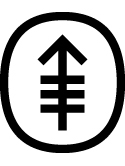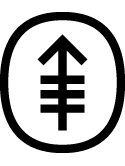Phase I clinical and pharmacology study of topotecan given daily for 5 consecutive days to patients with advanced solid tumors, with attempt at dose intensification using recombinant granulocyte colony-stimulating factor Journal Article
| Authors: | Saltz, L.; Sirott, M.; Young, C.; Tong, W.; Niedzwiecki, D.; Tzy-Jyun, Y.; Tao, Y.; Trochanowski, B.; Wright, P.; Barbosa, K.; Toomasi, F.; Kelsen, D. |
| Article Title: | Phase I clinical and pharmacology study of topotecan given daily for 5 consecutive days to patients with advanced solid tumors, with attempt at dose intensification using recombinant granulocyte colony-stimulating factor |
| Abstract: | Background: Topotecan has been shown In previous studies to be a specific inhibitor of topoisomerase I, a nuclear enzyme required for DNA replication and transcription. Purpose: Our objectives in this phase I clinical trial were to determine the maximum tolerated dose, dose-limiting toxic effects, and recommended phase II dose of topotecan and to define the pharmacokinetlcs of topotecan in humans. Methods: Forty-three patients with advanced, incurable solid tumors were treated. Doses ranged from 0.5 to 2.0 mg/m2 daily, with treatment cycles repeated initially every 28 days. Following the identification of the standard maximum tolerated dose, further dose escalations were attempted by following topotecan cycles with recombinant granulocyte colonystimulating factor (rG-CSF). Results: The maximum tolerated dose without rG-CSF for patients without prior cytotoxic therapy was 1.75 mg/m2 daily. The maximum tolerated dose for previously treated patients was 1.50 mg/m2 daily. The dose-limiting toxic effect was myelosuppression, with granulocytopenia being most commonly observed. Use of rG-CSF did not permit topotecan dose intensification, since thrombocytopenia and fatigue rapidly emerged as dose-limiting toxic effects. Plasma half-lives of topotecan (lactone form) were approximately 10 and 100 minutes for distribution and elimination phases, respectively. Conclusions: The doses of topotecan recommended for use in phase II clinical trials in solid tumors are 1.5 and 1.25 mg/m2 daily in previously untreated and previously treated patients, respectively. Based on observed rates of recovery from myelosuppression, treatment should be possible on a 21-day cycle. Dose intensification was not possible with the use of rG-CSF; however, rG-CSF may be a useful addition to the regimens of those few patients who experience either prolonged granulocytopenia or neutropenic sepsis or those who are not able to receive their second treatment cycle by day 21. [J Natl Cancer Inst 85:1499-1507, 1993] © 1993 Oxford University Press. |
| Keywords: | adult; clinical article; aged; fatigue; neutropenia; dose response; solid tumor; topotecan; neoplasms; cancer immunotherapy; bone marrow suppression; nausea; thrombocytopenia; camptothecin; antineoplastic activity; structure-activity relationship; drug distribution; recombinant proteins; sepsis; phase 1 clinical trial; drug half life; recombinant granulocyte colony stimulating factor; granulocyte colony-stimulating factor; dose calculation; granulocytopenia; intravenous drug administration; dna topoisomerase; drug elimination; middle age; human; male; female; priority journal; article |
| Journal Title: | JNCI: Journal of the National Cancer Institute |
| Volume: | 85 |
| Issue: | 18 |
| ISSN: | 0027-8874 |
| Publisher: | Oxford University Press |
| Date Published: | 1993-09-15 |
| Start Page: | 1499 |
| End Page: | 1507 |
| Language: | English |
| DOI: | 10.1093/jnci/85.18.1499 |
| PUBMED: | 7689654 |
| PROVIDER: | scopus |
| DOI/URL: | |
| Notes: | Article -- Export Date: 1 March 2019 -- Source: Scopus |
Altmetric
Citation Impact
BMJ Impact Analytics
MSK Authors
Related MSK Work







